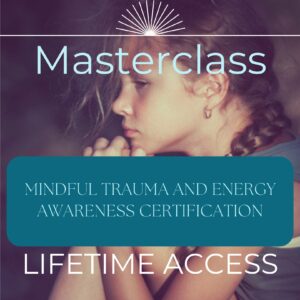Meditation for ACES
Meditation for ACES is of growing interest to help young people with trauma.
Adverse Childhood Experiences (ACEs) were originally discovered in the late 90s. It is now identified that ACES can impact peoples’ future experiences; mentally, emotionally, and physically.
ACEs encompass a spectrum of traumatic childhood experiences; abuse, neglect, or household dysfunction. These experiences can have lasting repercussions on an individual’s life, contributing to serious health issues and challenges in later life. The medical community suggested a range of ideas to help – one of these is meditation.
Meditation to process trauma
Meditation is a holistic approach to healing from ACEs by addressing the psychological, emotional, and physiological aspects of trauma.
As a result, research confirms that meditation practices help with emotional regulation, brain ‘rewiring’, and resilience-building.
Mindfulness meditation may be linked to spiritual practices but is now offered as a secular practice. Within the last 20 years, there is empirical research to justify why meditation benefits physical, emotional and mental health.
The *work of Professor Jon Kabat Zinn – has made mindfulness available to the medical sector and other professionals.
Mindful Benefits for the Young, Stressed Brain
A stressed brain struggles to learn new information. If young people can relax their nervous sytem, they are more likely to learn and study more effectively.
Teaching meditation for ACES helps young people improve their long term prospects too. By engaging in study and learning, it can lead them to positive career choices or further education.
Current evidence demonstrates how the mind and emotions are linked and how trauma can be held in the body. Using meditation for ACES can help process trauma with mindful sensitivity for positive mental and emotional connections.
Attachment Parenting and Meditation
There are key benefits of meditation for ACES for parents or carers practicing attachment parenting. It fosters a reflective practice that brings useful insights for both the parent/carer and their children.
Through mindfulness techniques, parents and carers can enhance their abilities. They learn to attune to their child’s needs, remain present in challenging moments, and respond with patience and compassion.
It helps parents/carers cultivate a strong sense of self-awareness and personal emotional regulation. Meditation empowers parents and carers to navigate the ups and downs of parenting/adoption or fostering with greater awareness and resillience.
For the parents/carers, a regular meditation practice can help them teach and demonstrate the positive behaviours they wish for their children.
A mindful story for anxious children
In our third book, we use storytelling to engage anxious, young people to learn more about mindful and meditation practices.  Written by Connected Kids founder and author, Lorraine E Murray. Lorraine is a foster mum and with 20+ years of teaching children mindfulness and meditation skills with trauma-sensitive awareness.
Written by Connected Kids founder and author, Lorraine E Murray. Lorraine is a foster mum and with 20+ years of teaching children mindfulness and meditation skills with trauma-sensitive awareness.
Already work with trauma?
If you currently work with children experiencing trauma, we offer a Masterclass in Mindful Trauma-sensitive Energy Awareness. This course combines trauma knowledge from western societies with energy and meditation practices from eastern philosophies.
course combines trauma knowledge from western societies with energy and meditation practices from eastern philosophies.



